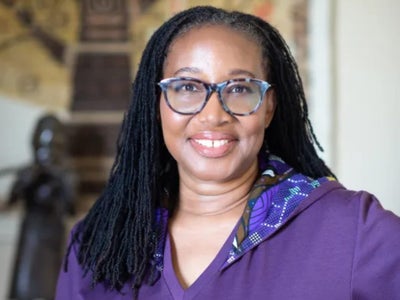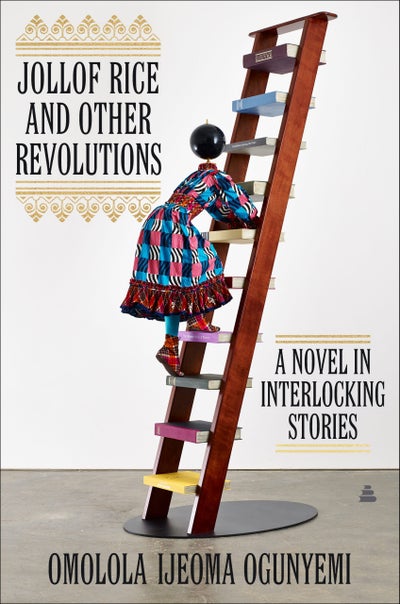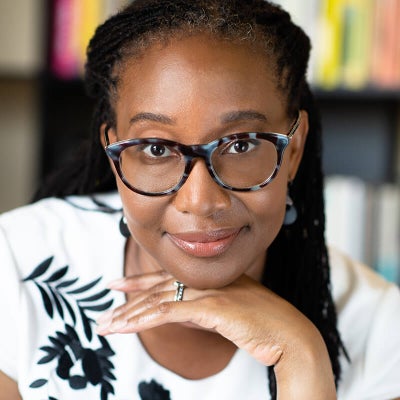
 By Kenrya Rankin· Updated September 28, 2022
By Kenrya Rankin· Updated September 28, 2022
In her fiction debut, Jollof Rice and Other Revolutions: A Novel in Interlocking Stories (Amistad, $27.99), Omolola Ijeoma Ogunyemi spins tales that illuminate the lives of three Nigerian friends and the people who love them, both past and future. Here, we talk to the author about her book, her hopes and, of course, jollof.
Where did the idea for this book come from?
OMOLOLA IJEOMA OGUNYEMI: It’s loosely based on experiences from my childhood, family lore, my love of travel, and the wonder and challenge of being an immigrant in the United States.
Who makes the best jollof, and why is the answer Nigeria?
OGUNYEMI: First, I have to pay my respects to the Wolof people of Senegal and Gambia, who gifted the world this wonderful dish. Many West African countries make good jollof, but if you want that smoky, spicy, make-your-mouth-sing-as-you-wriggle-with-joy-in-your-seat jollof goodness, it’s Nigerian party jollof you’re looking for. For a more sedate, tomatoey experience that shrouds your taste buds in regret, there’s Ghanaian jollof. I’m absolutely joking, my Ghanaian brothers and sisters! [laughs]

You’ve lived in so many places. What location feels most like home to you?
OGUNYEMI: Leaving Nigeria inspired me to look back at my life and appreciate the unique aspects of growing up there in the eighties—yet I’m not sure I’d be a writer if I’d stayed. While I have memories that I cherish, I realized years ago that the Ibadan of my childhood largely exists in my head. I loved living in New York City, Philadelphia and Boston, but Los Angeles is home now. It’s where I’ve done some of my most meaningful work and where I met my husband. And I love the mix of neighborhoods and the friendships I’ve nurtured here. It’s been very good to me.
In the first story of your book, the character Adaoma embraces many aspects of life—such as marriage, starting a business and so on—at what would be considered an early age by today’s standards, particularly in the United States. What are some things you did before you had any business doing them?
OGUNYEMI: Secretly reading some of my mom’s books when I was 9 or 10, including James Baldwin, even though I didn’t understand even half of what I was reading. And sneaking sips of the dessert wine she kept for visitors.

Death—and the fear of it—is a common theme in these stories. Why was it important for you to unpack that in this work?
OGUNYEMI: Death is a final, mystifying ending that we all confront over and over, even as we continue the serious business of living. My people celebrate a long life lived well, even as we mourn lives cut down before their promise can be realized. I wanted to explore the ways we handle loss in the near and long term.
If you had a time machine for one day, would you rather travel backward or forward?
OGUNYEMI: Backward, because there are some good times within my lifetime that I would absolutely want to relive.
When readers finish the last page of this work, what do you want them to walk away with?
OGUNYEMI: A sense of a lived life—one with friendships that stretch across the years and the knowledge that it isn’t too late to change the things they don’t like, in themselves or in society.
This article appears in the September/October 2022 issue of ESSENCE magazine on newsstands now.
The post Omolola Ijeoma Ogunyemi On The Inspiration Behind Her First Book: ‘Jollof Rice And Other Revolutions’ appeared first on Essence.
